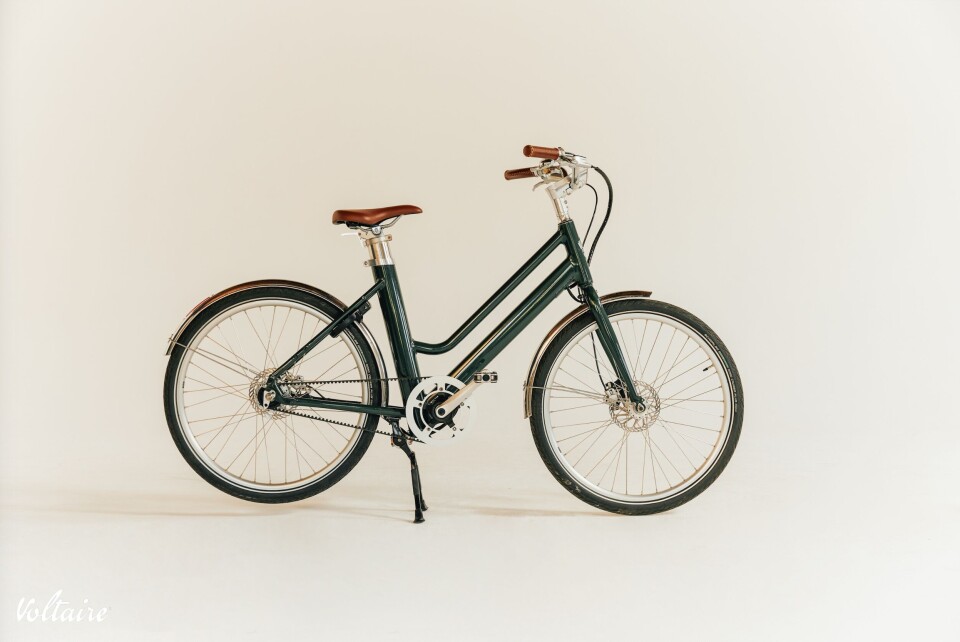-
Drivers, cyclists and pedestrians warned of major road change in Nice
Court rules that widely used one-way seafront road must become two-way
-
Tour de France 2026 route revealed - does it pass near you?
Both the men’s and women’s races will begin outside of France
-
Electric bike popularity in France opens way for new insurance deals
Number in country rockets as theft policies evolve
French e-bike mania spurs entrepreneurs to design their own models
A growing number of companies in France are looking to challenge the dominance of Chinese imports, although most still rely on Asian parts

Electric bicycles are becoming a viable alternative to cars and scooters in urban areas in France, helped by government grants and the perception that they are greener.
Most are made abroad, usually in China, which undermines some of the ecological credentials unless they are used regularly for a number of years.
Asian import wave
France was once a leader in the development of electric-assisted bicycles before many makers were swamped by the Asian import wave.
An example is ISD, which started making and selling its first models from a workshop in Sireuil, Charente, in the early 2000s, before struggling against the flood of cheap Chinese e-bikes.
It seems to have stopped selling bikes but for a while continued to sell spare parts, although now the telephone has been disconnected.
100% French at design and assembly stage
After the Covid lockdowns, the tide started to turn and now there are a handful of electric bike companies in France.
Almost all rely on Asian parts but design and assemble the bikes in France.
Grégoire Lieurade, co-founder of e-bike company Voltaire, told The Connexion: “Above all, it is the design which is French and makes a difference – so you can say our bicycles are 100% French at the design stage, and then also 100% French at the assembly stage, but the manufacturing of all the parts is done in Asia.
“We have looked to see if it is possible to use frames made in France, but at the moment the prices and the volumes mean it is not something we can do.”
International expansion
The company started selling e-bikes last summer and sold 1,000 in its first 15 months.
This convinced investors to stump up €5million for international expansion, with the UK, Germany and even the Netherlands as target markets.
“Our style is to make a simple-looking, almost retro-style bicycle, but with all the technology of a good quality e-bike,” said Mr Lieurade.
‘Cultural shift’
He said the company’s business plan sees the overall market for e-bikes rising 10% a year for the next decade.
“I have seen a cultural shift in France, and especially in Paris, over the last decade,” he said.
“After living abroad for a while, I came back and was astounded by the number of bicycles on the road, and a good proportion of them are e-bikes. You can use them to get to work and your heartbeat is the same as if you had walked.”
Government grants
It is estimated that around 660,000 electric bikes in total were sold in France in 2021.
Means-tested grants are available for purchase, from the government and often also from communes.
Read more: French MPs back more cycling aid including for electric bikes
Both Mr Lieurade and his co-founder Gabriel Ecalle have previously worked with cars – Mr Lieurade for Porsche and Mr Ecalle as a motor industry financial specialist in London.
They are convinced that new transport methods which are better for the planet will continue to be developed.
The company has started selling its bikes through the Decathlon sports chain – for €2,190 – and specialist shops.
Read more: Would our French house insurance cover our new electric bikes?
Reconditioning old batteries
The growth of e-bikes has also focused attention on the batteries they use, which often account for €500 of the price.
Regular users can find the batteries start losing efficiency after three years, with bike shops wanting to sell them new, expensive replacements.
French firm Doctibike specialises in renewing old batteries instead, for half the price. It estimates that only 15% of electric bike batteries cannot be reconditioned.
The firm was founded in 2014 by Anne-Sophie Caistiker. It has a factory in Lyon, and is opening in Germany and on the French island of Réunion.
Last year, it reconditioned some 15,000 batteries.
Earlier this year it saw one of its clients, Green Riders, an importer of electric scooters, become majority shareholder and hopes to expand further.
Related articles
Thinking of buying an electric car in France? Now may be a good time
France in top 5 for cycling in the world, Google Maps data shows
Avoir un petit vélo dans la tête and other cycling terms your may hear
























